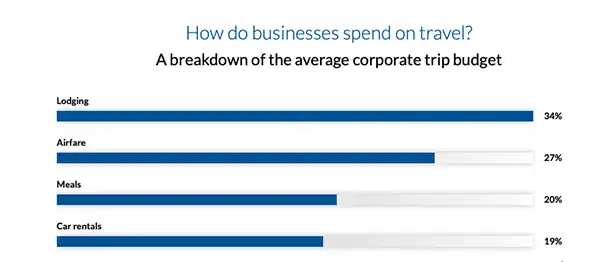
Travel expenses often consume a significant portion of a company’s budget, especially for companies that require frequent employee commutes. These costs can quickly escalate and become a major financial burden if not managed effectively.
In this article, we’ll share helpful tips from ThePayStubs, a professional accounting team, on how to manage business-related travel expenses and keep them under control.
Plan Ahead
Planning ahead is necessary when managing business travel costs. This involves creating a comprehensive travel policy that clearly outlines what is covered and what is not. The policy should be communicated to all employees to avoid misunderstandings.
Take time to research and compare prices for flight tickets, accommodation, and car rentals. Utilizing early bird discounts and special offers can result in significant savings. Moreover, consider scheduling meetings and conferences during the off-peak trasit season when rates are generally lower.
Remember, a well-planned traveling itinerary not only helps in budgeting but also ensures a stress-free trip for your employees. They can focus on their work without worrying about logistics and expenditures, thus enhancing productivity.
DO YOU KNOW Business travelers make up 12% of an airline’s passengers, but they represent 75% of the profit. (Investopedia, 2020).
Use Corporate Credit Cards
Corporate and travel credit cards are an effective tool for keeping track of costs. They provide a straightforward method for employees to make necessary purchases while on a business trip without the need to worry about cumbersome reimbursement processes.
This saves time and administrative effort for both the employees and the company’s finance department.
Also, many credit cards offer rewards programs or cash back on purchases. These benefits can be particularly lucrative for transit and accommodation expenses, potentially saving the company a significant amount on future company trips.
It’s a win-win scenario – simplifying cost management while also unlocking valuable perks and savings.
Optimize Expense Reporting
Proper expense reporting is vital for maintaining transparency and preventing fraud or misuse of funds. It’s significant that employees know how to file comprehensive, accurate spending reports. These reports should include the nature of each cost, the date it was incurred, and any accompanying receipts or documentation.
To make the process easier and more efficient, consider implementing a digital budget management system. These systems can automate much of the process, reducing the risk of human error and ensuring more accurate reporting.
They can also speed up the reimbursement process, which can boost employee morale and satisfaction.
Take a look at the graph below that shows how much businesses spend on travel-related budgets. Traveling locally or internationally may require hotel booking with a conference room facility to hold corporate meetings, and therefore, it is relevant to consider that as a high priority.

Utilize Technology for Meetings
In this digital age, technology can be a cost-effective alternative to business trips. Video conferencing tools like Zoom or Skype can facilitate virtual meetings, negating the need for expensive trips. This doesn’t only save on commuting expenses but also reduces time wasted in transit.
However, be aware that nothing can truly replace face-to-face communication, so use this tip judiciously, considering the nature and importance of each meeting. Also, be respectful while on a conference call while traveling as it comes with many challenges.
No matter where your accommodation is, strong internet connectivity is a must. Be respectful of the local surroundings that may disturb others who are around you. Minimise distraction by selecting a decent background screen that elevates instead of diminishes your professional disposition.
If you want to engage in an online meeting, then be mindful of differing time zones that may interfere with others’ work environments and lifestyles. Maintaining focus may also be a challenge when traveling and conducting multiple virtual meetings.
Preparing and organizing all paperwork or folders that have all the company data is relevant. At the same time engaging actively for a successful online corporate meeting requires taking care of your health.
Negotiate Volume Discounts
For organizations with frequent flyer needs, negotiating volume discounts with service providers can be a smart move toward efficient cost management. Hotels, car rental companies, and airlines often offer considerable discounts for companies that can assure a certain volume of bookings over a specified period.
This strategy involves reaching out to these service providers and discussing potential deals or contracts. The concept is simple: the more your company utilizes its services, the less you pay per unit.
Over time, these discounts can culminate into substantial cost savings, easing the financial burden of business travel and allowing resources to be allocated elsewhere. It’s a proactive approach that can yield long-term financial benefits.
Conclusion
By implementing these tips, you can effectively manage and reduce business-related travel expenses. Don’t forget to also review your touring policies regularly and make necessary adjustments to ensure they align with your company’s budget and goals. With careful planning and optimization, business trips can continue to be a relevant part of conducting meetings and work while minimizing costs.












